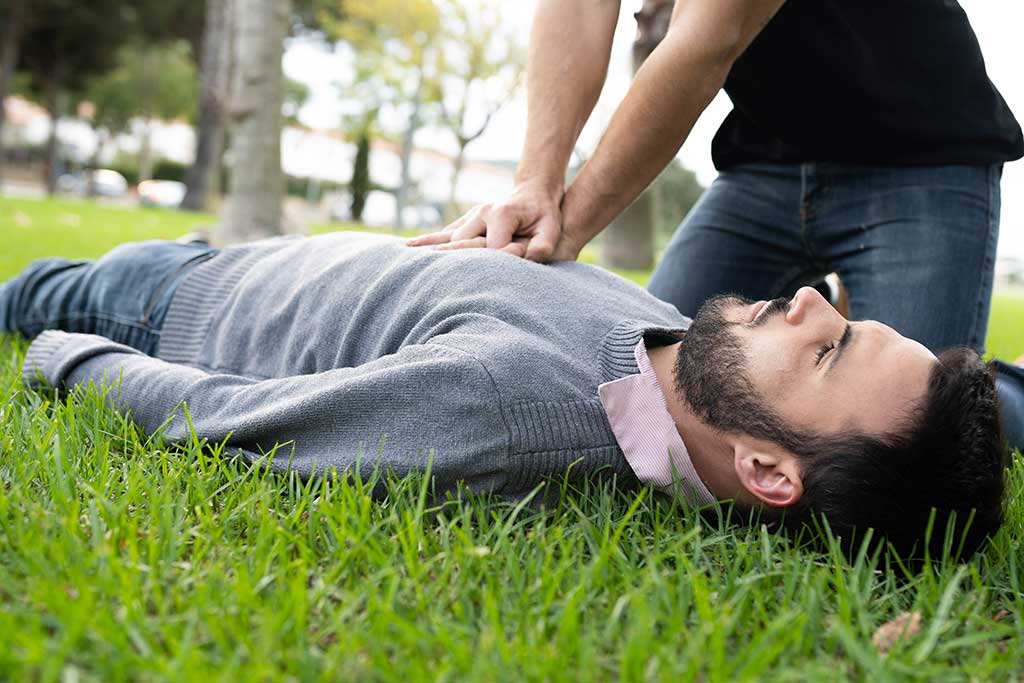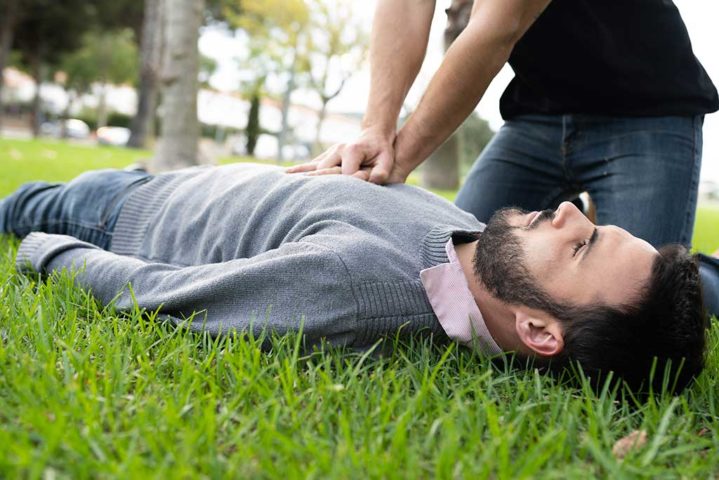Cardiac arrest is concerning condition in which the heart stops pumping, leading to a loss of blood flow to the brain and other vital organs. While cardiac arrest is different from a heart attack, a heart attack will often cause cardiac arrest. Of course, cardiac arrest can quickly become fatal if left untreated, making it important to know and recognize the early signs of cardiac arrest as well as avoid the risk factors that can lead to this dangerous condition.

Early Signs
In many cases, the first and only symptom of cardiac arrest is a sudden loss of consciousness. Once a person has gone into cardiac arrest, they won’t demonstrate a pulse or a heartbeat.
In addition to a loss of consciousness, though, there are other early signs that sometimes precede cardiac arrest. These signs include symptoms such as:
- Shortness of breath
- Heart palpitations
- Chest pain
- Lightheadedness or dizziness
- Weakness or fatigue
If you notice any of these symptoms, it’s essential to receive emergency medical attention as quickly as possible.
Risk Factors
Cardiac arrest is a condition that can affect anyone regardless of their age, health, or habits. In fact, even young athletes at the peak of their physical fitness have been known to die during sporting events due to cardiac arrest. With that said, though, there are a number of risk factors that can increase a person’s chances of suffering a cardiac arrest. The risk factors for cardiac arrest include things such as:
- Excessive alcohol intake
- Smoking
- Age
- High cholesterol
- High blood pressure
- A family history of coronary heart disease
- Sedentary lifestyle
- Obesity
- Diabetes
Since 30% of cardiac arrest cases are caused by a heart attack, avoiding heart attack risk factors can help lower your chances of suffering a cardiac arrest as well. Ultimately, an active lifestyle and healthy diet – in addition to avoiding risk factors such as smoking and excessive drinking – is the best way to minimize your chances of suffering a cardiac arrest.
What to Do if Someone is Suffering a Cardiac Arrest
If someone is showing signs of cardiac arrest such as a loss of consciousness and the lack of a pulse or heartbeat, it is essential to act swiftly. In fact, every minute that a person is in cardiac arrest before the arrival of a deliberator lowers their chances of survival by 10%. While deliberation of the heart is the most effective way to treat cardiac arrest, CPR can be used to treat cardiac arrest and restart a person’s heart until emergency medical help arrives.
At EA Certs, our CPR courses are designed to teach students how to recognize the early signs of cardiac arrest and perform CPR in a manner that is meant to maximize the patient’s chances of survival. If you would like to learn the skills and knowledge necessary to recognize the signs of cardiac arrest and perform CPR to restart the patient’s heart, be sure to check out the high-quality CPR classes that we offer at EA Certs.

